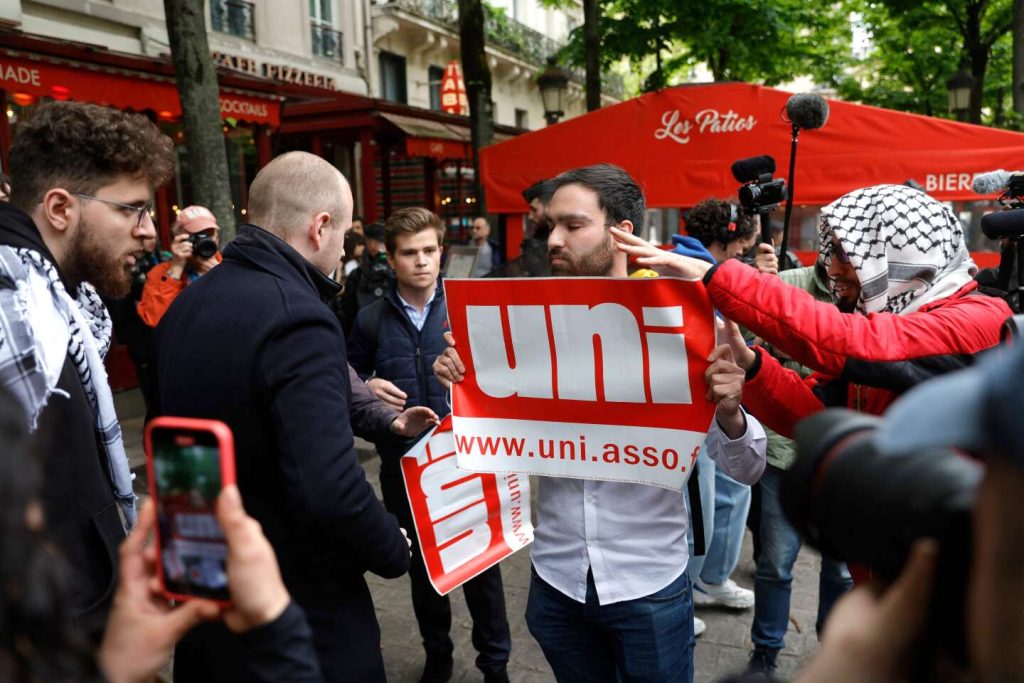Since the Algerian War, hatred towards “Arabs”, and later towards “Muslims”, has been a central theme for the French far-right. The generation that had not come to terms with the loss of Algeria was succeeded by one that thrived on blaming immigrants for all the country’s problems. This obsession was long overshadowed by blatant antisemitism, rooted in Maurras and collaboration with Nazi Germany, which Jean-Marie Le Pen made no effort to hide. In contrast, the left and far-left, despite past slip-ups, historically stood as opponents of racism and antisemitism. Most Jews and Arabs in France tended to align with them, united by their common enemy: those who harbored prejudice and hatred towards them.
It seems as though the events of the massacres on October 7, 2023, carried out by Hamas and the Israeli war in Gaza, have accelerated the already advanced obsolescence of this pattern, reinforcing a dramatic crossroads. Marine Le Pen’s far-right party is taking advantage of these events to both downplay its antisemitism – even claiming to defend Jews, a bold move in their “de-demonization” strategy – and fuel its stigmatization of Muslims. On the other hand, Jean-Luc Mélenchon’s radical left believes it can gain Muslim votes by making the tragedy in Gaza the centerpiece of its campaign for the European elections, even if it alienates many Jews by conflating “Jews”, “Israelis”, “Zionists”, and “colonialists”, as well as showing hostility towards the Israeli government and denying the country’s existence.
The fact that lawyer Arié Alimi, a supporter of radical left-wing movements, has authored a book on his struggles as a left-wing Jew (Jewish, French, and left-leaning… in disarray, La Découverte, 144 pages, 14 euros) and states in Le Monde on April 7 that “since October 7, the antisemitic rhetoric mainly comes from left-wing organizations” is indicative of the current confusion. For students at Sciences Po and beyond who are genuinely outraged by the bombardment of civilians in Gaza by Israel and the passivity of the West, it is not easy to navigate this context where they are scrutinized at every word, every slogan. For Alice, a fifth-year student, “accusations of antisemitism are traps laid out for us, but they seem insulting. The suffering of each party is fully taken into account by our slogans”.
In conclusion, it is clear that the events surrounding the conflict in Gaza have brought to light deep-rooted issues of racism, antisemitism, and Islamophobia in French society. The manipulation of these sentiments by political parties on both the far-right and far-left demonstrates the complexities and challenges of navigating such sensitive topics. It is essential for individuals, especially young students, to engage critically with these issues, strive for dialogue and understanding, and resist falling into the traps of prejudice and hatred. Only through open and respectful discourse can progress be made towards a more inclusive and tolerant society.


